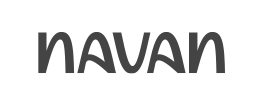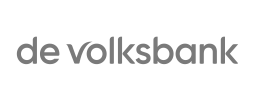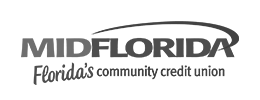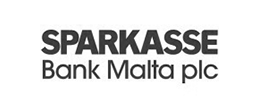Reconciliation meets AI: How to stay grounded amidst the hype
ReconArt stands for balanced and integrity-driven approach to AI to bring real value in its reconciliation solutions without magic promises
Since its inception, ReconArt has been at the forefront of new technology research to the benefit of the reconciliation process’s effectiveness. In our history as a company, all significant improvements in the speed and effectiveness of the reconciliation processes come from the integration of new technologies. Generative AI makes no exception.
As with many promising new technologies before that, our R&D researchers followed the development and rollout of generative AI technology. This breakthrough technology has the potential to reinvent the reconciliation process by automating tedious tasks and enhancing accuracy, helping reconciliation specialists make the best of their time and resources.
Understanding generative AI
One specific implementation of AI technologies came up in 2021 with the mass deployment of generative AI algorithms. Generative AI leverages deep learning and machine learning techniques to generate new content from existing data sets. It works by analyzing patterns, structures, and relationships within a given dataset to create new data points that closely resemble the original ones.
Large language models provide the foundation for this technology, giving AI the ability to comprehend and generate human-like text and interact in human-like form with the users of the application. This advancement has opened up numerous possibilities in various industries, including finance, reconciliation and accounting.
The AI “revolution” in the reconciliation space
Some vendors of reconciliation software claim that the integration of AI technologies in reconciliation solutions revolutionizes the reconciliation process. They argue that AI can automate complex tasks, reduce errors, and enhance efficiency, making the whole process smoother and faster. In some publications, AI can generate matching rules, reconcile data automatically and categorize exceptions without human intervention.
While we deeply admire new technologies and their potential benefits, we also strive to apply critical thinking in the analysis of these processes and potential risks in using the technologies in such a way.
Arguing against uncontrolled use of AI for reconciliation
While AI is getting a lot of praise recently with possible applications in all industries, our analysis team took a critical view on the present level of the technology and potential drawbacks using it for financial reconciliation. Here are several question you need have answered when the next magical AI tool is advertised to automate all the reconciliation with zero intervention from the user.
- Hallucinations – AI technologies can generate false data points that may be perceived as real, leading to inaccurate reconciliations. Matching the wrong records together can cause critical errors in the reconciliation process with unpredictable implications in sensitive areas. Take payroll or medical records, for example It may be hard to trace back the error or pinpoint responsibility in that case.
- Need for human verification of the results – While AI can significantly speed up the reconciliation process and reduce human intervention, it is still essential to design the process in a way that includes human review and verification the results. This is especially crucial in industries where compliance regulations are strict and require thorough documentation of the reconciliation process and auditability of its logic.
- Dependence on data quality – AI algorithms rely heavily on large datasets for accurate results. Errors or inconsistencies in the data can lead to incorrect conclusions and reconciliations. Therefore, having high-quality data is a crucial prerequisite for the implementation of AI in reconciliation processes. Unfortunately, in our 10+ years of experience this is rarely the case when multiple partners are involved in the provisioning of the data.
- Data security – Using externally trained models from third party providers to process financial data and find dependencies in it may be dangerous. Overdependence on external providers may create the risk of losing control of the process. On the other hand, implementing models in-house requires significant hardware resources and knowledgeable specialists, which pushes the costs upwards.
- Loss of expertise – Even if ‘AI-fication’ of the entire reconciliation process was possible, consider the probable implications for the reconciliation teams’ expertise. As AI takes over first the tedious and repetitive tasks, then the entire process design, human expertise development in this area tends to decline. In the long run, this would affect the human ability to troubleshoot and resolve complex reconciliation issues without AI guidance. Consider what navigation using Google Maps and Waze is doing to our abilities to navigate using maps and street signs. We believe that growing the competence of the human teams is tied to the habit of resolving complex issues hands on. AI reconciliation is the opposite of this, streamlining the processes with zero thinking involved by the human team could lead to the opposite effect.
- Magical thinking – In most cases where magical solutions are promised, careful consideration of the potential risks should take place. Imagine central bank regulators discovering a gap in the balance sheet following unsupervised AI reconciliations. Auditing a black box is a nonsense. One can also draw analogies with other industries where blinding enthusiasm has outrun reality (Theranos anyone?). We believe there are no shortcuts to success in complex tasks, including reconciliations besides the advantage of human expertise and problem solving skills, at least at this stage of the development of the technology. AI can be the perfect complementary tool for reconciliation specialists, but it should not be seen as the replacement for human expertise.
Basic principles when implementing new technologies in the reconciliation process
Considering all those arguments, our R&D team defined the following basic principles when new technology is integrated in ReconArt to improve the performance and avoid pitfalls before reliable reconciliation processes:
- There are no shortcuts – The technology can only help human specialists but cannot replace them. Human validation is needed for the results generated by the technology because humans are ultimately responsible for the results of the process. This is the reason we selected areas in ReconArt that can benefit from the AI technology but still require human review of the final results.
- AI should be a complement, not a replacement – When implementing a new technology in the reconciliation process, it should serve as a tool to augment the human skillset, not replace human expertise altogether. AI can handle repetitive tasks and large datasets but still falls behind humans in critical thinking, context understanding or decision-making abilities.
- Transparency and understanding of the technology – It’s essential to fully understand how the technology works before integrating it, analyze all the risks and carefully select the area of application.
- Keep sensitive data out of reach – In order to minimize the risks and potential errors, using AI technology is recommended only in areas where sensitive data is not involved. This way, any errors or false data generated by the technology will have a limited impact on the overall reconciliation process.
- Consider the risk of overdependence on external vendors – Imagine all reconciliations are automated using an external AI model. What would happen if the vendor closed down or made significant changes in the algorithm? The affected reconciliation tool that heavily relies on AI could suffer severe operational disruptions and a loss of critical functionality. It is important to have contingency plans and consider alternative solutions to mitigate such risks and keep internal expertise in top shape.
- Apply technology only where it is best suited for – We spend a lot of our research time to analyze breakthrough technologies and experiment on your behalf with their potential application. In the process, we expose potential risks and dependencies. As a result, you can reap the full efficiency benefits combined with the necessary safeguards against the risks involved in the implementation of this new technology.
Transforming reconciliation processes – practical implementation
The ability of generative AI to analyze large datasets and generate accurate results faster than any human has significant implications for the reconciliation processes. Following the fundamental principles outlined above, ReconArt has approached the implementation of generative AI in its reconciliation solution.
With ReconArt AI Assistant, companies can utilize generative AI to speed up the process of data transformation and creation of matching rules based on a human language description of the logic. ReconArt users can also optimize the existing rules following a deep performance analysis with AI. ReconArt AI Assistant can also suggest elegant or more efficient ways to draw up the matching logic based on analysis of the rules, criteria, and performance.
To ensure data security, ReconArt only applies AI models to generic expressions that do not contain any financial or other sensitive data. This technology application connects the best of both worlds—introducing new, effective technology right where it makes most difference and risk-free management of business data.
Beneficial use of AI in reconciliations
Our application of ReconArt AI Assistant offers several key benefits that can transform the way reconciliation is handled:
Simplified Data Analysis
Based on our proprietary training models, the AI algorithm can produce expressions for data transformation during imports and exports based on human-language descriptions of the objectives. Moreover, it can explain complex transformations created by other users to a novice or user with less experience.
Understanding Matching Rules
One of ReconArt AI Assistant’s standout capabilities is its ability to understand and adapt to existing matching rules within the reconciliation software.
- Intelligent Rule Adaptation: AI learns from historical data to refine matching criteria, improving accuracy and efficiency over time. It only analyses statistical information about rule performance in the past, thus guaranteeing the security of the data, and suggests ways to improve it.
- Error Reduction: By understanding and applying complex matching rules, ReconArt AI Assistant minimizes human errors and ensures consistency.
Faster Onboarding
Onboarding new users onto reconciliation platforms has traditionally been a time-consuming process. Knowledge transfer and preservation becomes a primary objective in order to maintain continuity within the reconciliation teams. ReconArt AI Assistant accelerates this by providing intuitive interfaces and responsive support.
- User-Friendly Interfaces: AI can simplify user interactions with the software, making it easier for new users to get up to speed. It provides conversational guidance to the most popular tasks in the software.
- Personalized Training: AI-driven tutorials and support can provide personalized guidance based on individual user needs.
Revolutionizing reconciliations with AI, sensibly
The integration of generative AI into reconciliation software represents a significant leap forward for finance professionals, tech enthusiasts, and business owners. By enabling easier data analysis, understanding matching rules, speeding up onboarding, and ensuring secure data handling, ReconArt AI Assistant not only enhances efficiency but also bolsters the overall reliability of reconciliation processes. The ReconArt team step into this endeavor with consideration of the potential risks any new technology might carry and carefully selecting areas it can be integrated in most efficiently.
By leveraging the power of generative AI, ReconArt is at the forefront of revolutionizing reconciliation software, offering finance professionals the tools they need to stay ahead in an increasingly complex financial landscape. By focusing on security, ReconArt is the non-compromise solution for integrating new technologies in the reconciliation process in a safe and consistent way.
Ready to transform your reconciliation process? Discover how our AI-powered solutions can revolutionize your financial operations. Book a Demo

 follow our blog
follow our blog





















